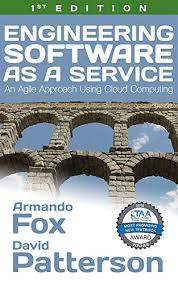Textbooks and Learning Resources Aligned with the ACM/IEEE Software Engineering 2014 Curriculum: A Comprehensive Guide for Students, Educators, and Professionals
With Recommendations from IAS-Research.com and KeenComputer.com
June 2025
Executive Summary
The Software Engineering 2014 Curriculum Guidelines for Undergraduate Degree Programs in Software Engineering, jointly released by ACM and IEEE-CS, serve as a global standard for academic programs in software engineering. These guidelines map the breadth and depth of competencies required in a modern software engineering education.
This white paper identifies a curated set of textbooks, online resources, and self-study pathways used by leading academic institutions that align with these curriculum recommendations. It includes actionable guidance for self-learners and professionals seeking lifelong learning or degree programs in software engineering, artificial intelligence, and machine learning.
1. Core Textbooks Mapped to Knowledge Areas
1.1 Software Project Management (PRO, FND.ec)
Key Knowledge Areas:
- Software Process (PRO)
- Engineering Economics (FND.ec)
Recommended Textbooks:
- Quality Software Project Management – Futrell, Shafer, and Shafer (Prentice Hall, 2002)
- Used at Mississippi State University. Covers planning, staffing, estimating, scheduling, monitoring, and risk management.
- The Deadline: A Novel About Project Management – Tom DeMarco
- Offers a narrative approach to the principles of project management.
- Agile Project Management (2nd Ed) – Jim Highsmith
- Required at Rose-Hulman Institute. Focuses on agile project life cycles, adaptive planning, and iterative development.
- The Software Project Manager’s Handbook (2nd Ed) – Dwayne Phillips
- Emphasizes soft skills, stakeholder management, scope control, rework minimization, and professional ethics.
1.2 Software Requirements Engineering & HCI Design (REQ, DES.hci)
Key Knowledge Areas:
- Requirements Analysis and Specification (REQ)
- Human-Computer Interaction Design (DES.hci)
Recommended Textbooks:
- Managing Software Requirements: A Use Case Approach (2nd Ed) – Leffingwell and Widrig
- Practical guide for elicitation, functional/non-functional requirements, and tracking.
- Interaction Design: Beyond Human-Computer Interaction (3rd Ed) – Preece, Rogers, Sharp
- Required at Rose-Hulman. Discusses usability, prototyping, and interface validation.
1.3 Software Design and Object-Oriented Patterns (DES)
Key Knowledge Areas:
- Software Design (DES)
Recommended Textbook:
- Applying UML and Patterns (3rd Ed) – Craig Larman
- Introduces SOLID principles, UML modeling, object-oriented analysis, and use-case driven design.
1.4 Software Construction and Evolution (PRO.evo, CMP.ct)
Key Knowledge Areas:
- Evolution Processes (PRO.evo)
- Construction Technologies (CMP.ct)
Recommended Textbooks:
- Working Effectively with Legacy Code – Michael C. Feathers
- Hands-on strategies for understanding and refactoring legacy code.
- Refactoring: Improving the Design of Existing Code – Martin Fowler
- Systematic methods for code improvement, focusing on testability and maintainability.
1.5 Software Testing and Quality Assurance (VAV, QUA)
Key Knowledge Areas:
- Verification and Validation (VAV)
- Software Quality (QUA)
Recommended Textbook:
- Software Testing: A Craftsman's Approach – Paul C. Jorgensen
- Explores test planning, coverage metrics, white-box and black-box techniques.
Additional Learning:
- Rose-Hulman Institute integrates labs on TDD, code coverage, performance testing, mocking, and integration testing without a central textbook.
1.6 Software Architecture (DES.ar)
Key Knowledge Areas:
- Architectural Design (DES.ar)
Recommended Textbook:
- Software Architecture in Practice (3rd Ed) – Bass, Clements, Kazman
- Discusses architecture evaluation, quality attributes (modifiability, performance), and architectural styles.
2. Podcasts and Online Learning Platforms
While no major curriculum explicitly lists podcasts, learners can benefit from:
- Software Engineering Daily (podcast)
- AI Alignment Podcast – Machine Learning & AI theory
- Changelog – Software development discussions
- Lex Fridman Podcast – High-level technical and philosophical conversations
3. Self-Study and Professional Learning Pathways
3.1 Foundational Learning Principles
The ACM/IEEE guidelines emphasize:
- Integration of theory and practice
- Modeling and abstraction
- Teamwork and communication
- Long-term thinking over short-term tools
- Capstone project-based learning
3.2 Recommended Platforms and Degree Programs
MOOC-Based Master’s Programs:
- Georgia Tech OMSCS: Top-tier, ~$6,000 total
- Coursera Partners: University of Colorado Boulder, UIUC, Northeastern
- WGU (Western Governors University): Self-paced, accredited, affordable
Online Platforms:
- edX, Coursera, Udemy, FutureLearn: Ideal for microcredentials or specialized study
- GitHub Open-Source Contribution: For practical, resume-worthy projects
- Project Euler / LeetCode / HackerRank: Algorithm practice and assessments
3.3 Mathematics & Domain Expertise
Mathematics Recommended for Software Engineers:
- Discrete Mathematics
- Calculus I–III
- Linear Algebra
- Probability & Statistics
Interdisciplinary Domain Learning:
- Business
- Healthcare
- Electrical/Mechanical Engineering
- Cybersecurity
- AI/ML
4. Advanced Learning in AI and Machine Learning
4.1 Practical Advice for AI/ML Mastery:
- Project-centric learning: Start with data, not just algorithms
- Reading Research Papers: Begin with GPT-1, Transformer architecture
- Use themlbook.com for concise ML theory
- Explore handbook.exemplar.dev for curated engineering content
5. Professional Development Support from KeenComputer.com and IAS-Research.com
Both IAS-Research.com and KeenComputer.com provide practical services to learners, professionals, and academic institutions pursuing ACM/IEEE-aligned learning paths:
IAS-Research.com:
- Academic coaching on AI, software engineering, and systems thinking
- Project-based mentoring for final year students and working professionals
- Help in writing and publishing technical white papers and research studies
KeenComputer.com:
- CMS and web app development (WordPress, Joomla, Magento)
- Agile software project consulting and DevOps integration
- Digital transformation solutions for educational institutions and SMEs
- Support for academic-industry collaboration in software engineering domains
6. Conclusion
Following the ACM/IEEE 2014 guidelines with the recommended textbooks and learning strategies ensures not only technical competence but also alignment with industry expectations and lifelong career success. Leveraging affordable online education, open-source contributions, and professional mentors like KeenComputer.com and IAS-Research.com can significantly enhance a learner’s journey.
References
- ACM/IEEE Software Engineering 2014 Curriculum Guidelines
- University course syllabi from Rose-Hulman Institute of Technology, Mississippi State University, and Southern Polytechnic State University
- Quality Software Project Management – Futrell et al., Prentice Hall
- The Deadline – Tom DeMarco
- Software Architecture in Practice – Bass et al.
- Refactoring – Fowler
- Applying UML and Patterns – Larman
- Georgia Tech OMSCS (https://omscs.gatech.edu/)
- themlbook.com
- handbook.exemplar.dev
Let me know if you'd like this formatted as a downloadable PDF or converted into a publication-ready LaTeX or Word document.



